About Freelancing :
Independence: Freelancers have the freedom to choose the projects they want to work on and the clients they want to work with. This independence allows them to pursue their interests and balance work with personal life.
1. Independence: Freelancers have the freedom to choose the projects they want to work on and the clients they want to work with. This independence allows them to pursue their interests and balance work with personal life.
2. Flexibility: One of the primary advantages of freelancing is the flexibility it offers. Freelancers can set their own work hours and often have the ability to work from anywhere with an internet connection. This flexibility can be particularly appealing to those who value work-life balance.
3. Diverse Opportunities: Freelancers can find work in a wide range of industries and fields. Common freelance professions include writing, graphic design, web development, marketing, consulting, and more. The gig economy has expanded the range of opportunities available for freelancers.
4. Remote Work: Many freelance jobs can be done remotely, allowing freelancers to collaborate with clients and teams from different parts of the world. This has become increasingly common with advancements in technology and the availability of online collaboration tools.
5. Varied Income Sources: Freelancers often work on multiple projects simultaneously or take on several clients at once. This can provide a more diversified income stream compared to traditional employment.
6. Self-Employment: Freelancers are essentially their own bosses. They are responsible for managing their own businesses, including tasks such as marketing, client acquisition, invoicing, and project management.
7. Challenges: While freelancing offers many benefits, it also comes with challenges. Freelancers may face fluctuations in income, the need to handle administrative tasks, and the absence of traditional employment benefits such as health insurance or retirement plans.
8. Networking: Building a strong professional network is crucial for freelancers. Word of mouth, referrals, and online platforms dedicated to freelancers are common ways for them to connect with potential clients.
9. Skill Diversity: Freelancers often possess a diverse set of skills. As they work on various projects, they have the opportunity to hone different abilities, making them adaptable and versatile professionals.
10. Portfolio Building: Freelancers build a portfolio of their work over time, showcasing completed projects and demonstrating their skills to potential clients. A strong portfolio is essential for attracting new business and establishing credibility in the freelance marketplace.
11. Client Relationships: Freelancers typically interact directly with clients, fostering a close working relationship. Effective communication, understanding client needs, and delivering quality work are crucial for building long-term client relationships and securing repeat business.
12. Market Trends and Rates: Freelancers need to stay informed about market trends and industry rates. This knowledge helps them set competitive pricing for their services and ensures they are compensated fairly for their expertise.
13. Time Management: Efficient time management is essential for freelancers who often juggle multiple projects simultaneously. Meeting deadlines and delivering high-quality work within specified timeframes are key to building a positive reputation in the freelance community.
14. Financial Management: Freelancers are responsible for their financial well-being, including invoicing clients, tracking expenses, and managing taxes. Financial literacy is important for maintaining a stable and sustainable freelance career.
16. Continuous Learning: Industries evolve, and freelancers must stay updated with the latest trends, technologies, and best practices in their respective fields. Continuous learning and professional development are integral to staying competitive in the freelance market.
17. Self-Promotion: Freelancers need to be proactive in marketing their services. This involves creating a strong online presence through personal websites, social media, and professional networking platforms to attract potential clients.
18. Negotiation Skills: Negotiating project terms, including scope, timelines, and compensation, is a common part of freelancing. Strong negotiation skills are valuable for reaching mutually beneficial agreements with clients.
19. Work-Life Integration: While freelancers enjoy flexibility, it’s important to find a balance between work and personal life. Setting boundaries and establishing a dedicated workspace can contribute to a healthier work-life integration.
20. Legal Considerations: Freelancers need to be aware of legal aspects such as contracts, intellectual property rights, and liability issues. Having clear agreements with clients helps protect both parties and ensures a transparent working relationship.
21. Community Engagement: Engaging with other freelancers and professionals in the industry through forums, events, and social media can provide valuable insights, support, and potential collaboration opportunities.
Popular platforms for freelancers include Upwork, Freelancer, Fiverr, and Toptal. These platforms serve as marketplaces where freelancers can showcase their skills and connect with clients seeking their services.
Overall, freelancing is a dynamic and evolving work model that can provide individuals with both professional opportunities and the freedom to shape their own careers.

